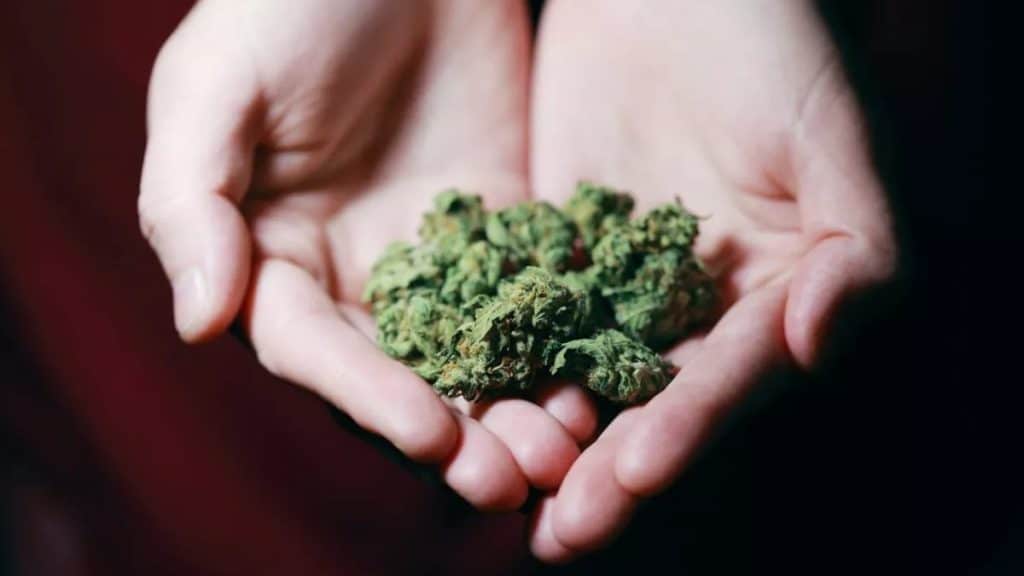THCa is a non-psychoactive cannabinoid found primarily in fresh and live cannabis. As the precursor to THC, the main psychoactive component of cannabis, THCa itself does not produce a “high” until it is decarboxylated, typically through heating, which transforms it into THC.
The interest in THCa has grown as researchers and consumers alike seek to understand its role in the cannabis plant’s effects and therapeutic benefits. While THCa is not psychoactive in its raw form, the conversation around its potentially addictive properties is tied closely to its conversion into THC, which can influence the brain’s reward system.
This discussion is essential in the context of increasing legalization and use of cannabis products, making it imperative to understand both the benefits and the risks associated with THCa and its more famous counterpart, THC.
Is THCA addictive?
THCa (tetrahydrocannabinolic acid) itself is not considered addictive because it is a non-psychoactive precursor to THC (tetrahydrocannabinol). THCa is found in raw and unprocessed cannabis and does not affect the brain in the same way that THC does. It doesn’t produce the “high” associated with THC because it does not readily bind to the CB1 receptors in the brain, which are responsible for the psychoactive effects of cannabis.
When THCa is heated through smoking, vaping, or cooking, it converts into THC, the psychoactive component of cannabis. THC can be addictive because it stimulates the brain’s reward system by increasing dopamine levels, which can lead to pleasure and reinforcement of behaviors, potentially leading to misuse or dependency in some individuals. To read more about THCa, check out exhale.
What does THCA do to the brain?
THCa (tetrahydrocannabinolic acid), in its raw form, does not have a psychoactive impact on the brain because it does not readily bind to the CB1 cannabinoid receptors, which are responsible for the euphoric effects associated with THC (tetrahydrocannabinol). Since THCa is the acidic precursor to THC and has not yet been decarboxylated (a process that occurs through heating), it doesn’t produce the “high” associated with cannabis use.
However, THCa may still have other effects on the brain and body due to its interaction with different biological systems:
Anti-inflammatory Properties: THCa has shown potential anti-inflammatory effects, which could help with arthritis and other inflammatory diseases.
Neuroprotective Properties: Preliminary studies suggest that THCa may offer neuroprotective effects, which could benefit neurodegenerative diseases like Parkinson’s and Alzheimer’s.
Anti-nausea Effects: Like THC, THCa may have anti-emetic (anti-nausea) properties, which could be helpful for patients undergoing treatments such as chemotherapy.
Potential Modulation of the Immune System: Some research suggests that cannabinoids, including THCa, may modulate the immune system, though the specifics of how this happens and its implications are still under investigation.
Does THCA make you feel high?
THCa itself does not make you feel high. It is the non-psychoactive precursor found in the raw cannabis plant. THCa does not have psychoactive effects because it does not directly activate the CB1 receptors in the brain, which are responsible for the euphoric effects associated with cannabis use.
The psychoactive effects are typically experienced only after THCa is converted into THC (tetrahydrocannabinol) through a process called decarboxylation, which occurs when cannabis is heated, such as during smoking, vaping, or cooking. Once converted to THC, it can then bind to the CB1 receptors and produce the high that many users experience. Therefore, consuming raw cannabis containing THCa will not result in the high that is typically associated with marijuana use.
What effect does THCA have on sleep?
Research on THCa and its effects on sleep is limited compared to its decarboxylated form, THC. THCa flower, being non-psychoactive, does not bind significantly to the CB1 receptors in the brain, which are instrumental in the psychoactive effects of cannabis, including its influence on sleep.
However, the potential indirect effects of THCa on sleep might be related to its other properties:
Anti-inflammatory Effects: Since THCa has shown potential anti-inflammatory benefits, it could help alleviate discomfort from conditions like chronic pain and inflammation, which can interfere with sleep.
Neuroprotective and Antioxidant Properties: While the direct impact on sleep isn’t well documented, the neuroprotective and antioxidant effects of THCa might contribute to overall brain health, potentially influencing sleep patterns indirectly.
Reduction of Nausea: THCa has been suggested to have anti-emetic effects, similar to THC, but without psychoactive outcomes. By reducing nausea, THCa might help improve sleep quality in individuals who suffer from conditions that disrupt sleep due to gastrointestinal discomfort.
Despite these potential benefits, THCa itself does not directly induce sleep or significantly alter sleep architecture as THC can. THC is known for its soothing effects, which can decrease the time it takes to fall asleep and alter sleep stages, mainly by reducing the amount of REM sleep.
Conclusion: Is THCa Safe?
THCa, the non-psychoactive precursor to THC found in raw cannabis, presents a complex and multifaceted profile. While it does not induce a high in its raw state, the process of decarboxylation, which occurs when THCa is heated, transforms it into THC, a compound with psychoactive properties that can potentially be addictive. THCa offers several health benefits, including anti-inflammatory, neuroprotective, and anti-nausea effects, which may indirectly influence sleep and overall well-being without the psychoactive effects associated with THC.
These properties make THCa a subject of increasing medical and scientific interest as research continues to uncover the cannabinoid’s potential therapeutic applications. However, users should remain aware of the changes that occur when THCa is converted to THC, especially considering the legal and health implications of consuming psychoactive cannabinoids. Overall, THCa can be regarded as safe when used appropriately, but understanding the full spectrum of its effects is crucial as the cannabis landscape evolves.
